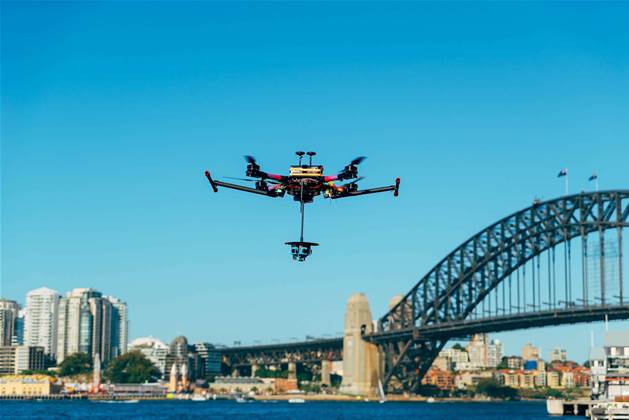Pilots and airport operators have asked for a national register of drone owners as well as no-fly zones that are embedded in the firmware of any unmanned aircraft weighing more than 2kg.

The Australian Airports Association (AAA), which represents some 260 airports and aerodromes nationally, and the Virgin Independent Pilots Association, which represents Virgin Australia group pilots, both recommended all drone owners be required to register their craft.
The comments were made in submissions to a senate committee examining safety regulations for the use of drones in Australia. A report is expected in April next year.
Pilots say they want drone fliers to pass a “basic air law examination”, obtain air traffic control (ATC) clearance to fly within 10km of an airport, have public liability insurance, and be subject to fines for breaches of air safety rules.
The airports, meanwhile, want drones that weigh more than 2kg – including any payload – to have air safety rules set in their control software or device firmware.
Those rules could include “height limitation, maximum distance from take-off point and integrating no-flight zones through geo-fencing on GPS units”, the AAA said.
The AAA suggested the limits be mandatory unless “appropriate permissions have been sought from CASA, the airport and Airservices Australia”.
Chinese drone maker DJI introduced geo-fencing restrictions to enforce no-fly zones back in 2014, though it provided an opt-out option this year after a backlash from its users.
Both the pilots and airport association raised concerns that drone strikes could become a growing hazard to existing air users, and that they could be more dangerous to aircraft than bird strikes.
The AAA said there were 14,571 bird strikes reported in Australia between 2004 and 2013, citing Australian Transport Safety Bureau figures.
The airports industry body also raised concerns about the safety of delivery drone services, which have been touted for everything from books to pizzas.
“There have been several international and Australian companies that are actively piloting the use of drones as a delivery device, given their ability to carry payloads,” the AAA said.
“It is these payloads that can potentially pose the greatest danger in the event of a collision with an aircraft."


.png&h=140&w=231&c=1&s=0)
_(36).jpg&h=140&w=231&c=1&s=0)

_(28).jpg&h=140&w=231&c=1&s=0)





 iTnews Benchmark Awards 2026
iTnews Benchmark Awards 2026
 iTnews Executive Retreat - Security Leaders Edition
iTnews Executive Retreat - Security Leaders Edition
 iTnews Cloud Covered Breakfast Summit
iTnews Cloud Covered Breakfast Summit
 The 2026 iAwards
The 2026 iAwards












_(1).jpg&h=140&w=231&c=1&s=0)



